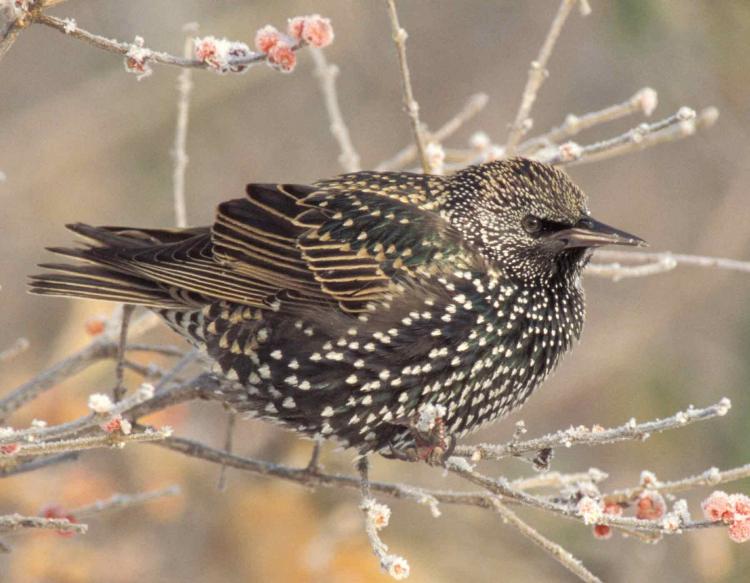During the winter, nearly all blackbirds migrate south, but enough stay in Missouri or move in from the north to create problems of flock-feeding at livestock feedlots or poultry operations where food is readily available. Starlings are usually the species involved. Livestock operations within 20 miles of winter roosts are susceptible to invasion by blackbird flocks, especially when snow covers the ground. The open food supplies and protection afforded by open livestock housing provide desirable habitat for these flocks.

Title
Mechanical
Blackbird depredations at feeding operations most often are associated with open feed troughs. For small operations, the problem often can be eliminated or significantly reduced by converting to enclosed feeders.
Title
Trapping & Shooting
Starlings are not protected by law. All other species of blackbirds are protected by the Migratory Bird Treaty Act and state regulations. They may, however, be legally taken when involved in depredation, but shooting and trapping are not recommended as an effective means of control.
Title
Pesticides
Pesticides are probably the most effective tools for controlling blackbird depredations in feedlots. Two pesticides are registered for this use. Written authorization of the Missouri Department of Conservation, however, is required for their use. Contact your local conservation agent.
Starlicide is a slow-acting poison that is highly toxic to starlings and other species of blackbirds. It eventually eliminates the majority of the birds causing damage. Contact your local feed store for sources of supply. Use in strict accordance with label instructions. Do not use in the presence of protected species.
Avitrol is a slow-acting poison that causes distress in affected birds. Avitrol products are treated and dispersed in such a way that few individual birds come in contact with the chemical. Their calls and antics frighten and disperse the remainder of the flock. While effective in controlling feedlot depredation, Avitrol products may be applied only by a licensed pest-control operator.





















